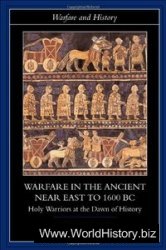Physician and poet
Born: Second or third century b. c.e.; Colophon, Ionia, Turkey Died: Second century b. c.e.; Alexandria, Egypt?
Also known as: Nikandros Category: Medicine; poetry; literature
Life Almost nothing is known about the life of Nicander of Colophon (nuh-KAN-dur of KAW-luh-fuhn). He wrote on medical topics in verse, mostly hexameter. Two of his books and some scholia survive. Alexiphar-maca describes many types of poisonings by animals, plants, and inanimate agents and suggests antidotes and other treatments. Theriaca deals more specifically with poisonings caused by animal bites, stings, and scratches. Among the titles of Nicander’s lost works are Georgica, Melissurgica (BeeKeeping), Heteroeumena (Metamorphoses), and Prognostica.
As a physician, he followed the empiric school of Philinus of Cos and Serapion of Alexandria. He introduced the medicinal use of the leech. This common method of phlebotomy (bloodletting) persisted into the nineteenth century.
Influence Nicander affected rhetoric, toxicology, and therapeutics. His reputation as both physician and poet was strong throughout ancient times and was revived in the Renaissance. The first printed editions of Theriaca and Alexipharmaca appeared jointly in Venice in 1499.
Further Reading
Gow, A. S. F., and A. F. Scholfield, eds. Nicander of Colophon: Poems and Poetical Fragments. Cambridge, England: Cambridge University Press, 1953.
Knoefel, Peter K., and Madeline C. Covi. A Hellenistic Treatise on Poisonous Animals: The “Theriaca” of Nicander of Colophon, a Contribution to the History of Toxicology. Lewiston, N. Y.: Edwin Mellen, 1991.
White, Heather. Studies in the Poetry of Nicander. Amsterdam, Netherlands: Hakkert, 1987.
Eric v. d. Luft
See also: Literature; Medicine and Health; Science.




 World History
World History









